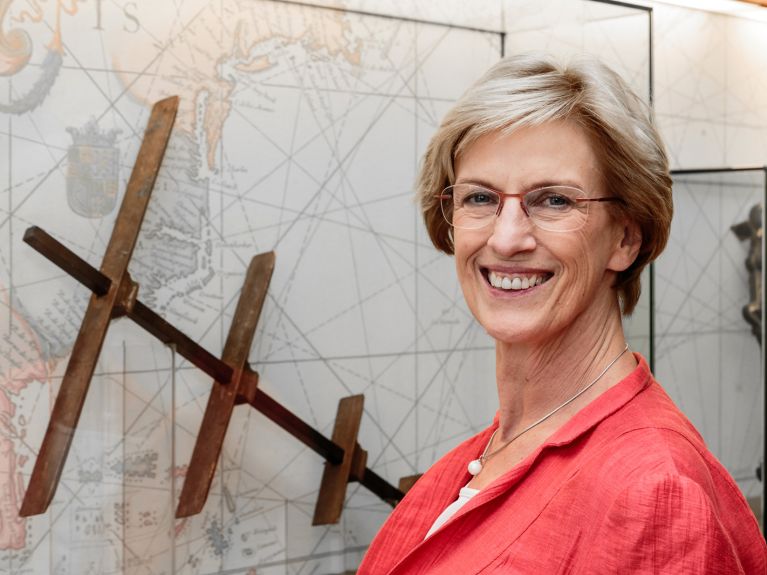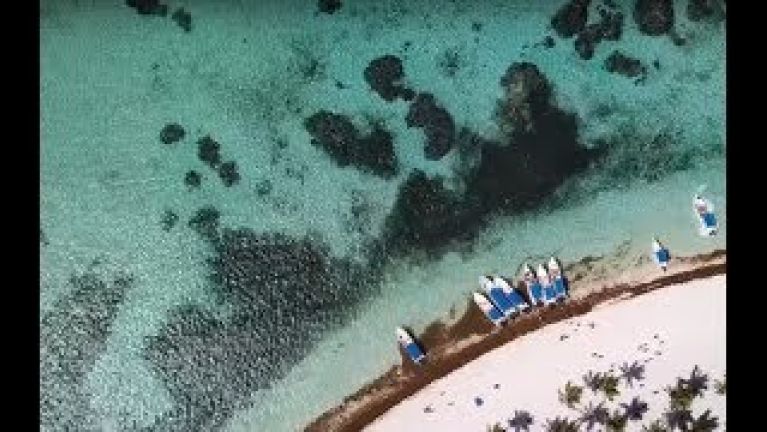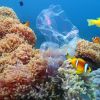Crucial ecosystems
How important are our oceans and what we do to protect them? An interview with Monika Breuch-Moritz, Germany’s Maritime Ambassador.

Climate change, overfishing and plastic waste are endangering the oceans, which are the habitats for innumerable animals and plants and an important source of nutrition for millions of people. Monika Breuch-Moritz knows how important the oceans are for the global ecosystem. The meteorologist has been engaged in ocean research since the 1990s and been Vice-President of the Intergovernmental Oceanographic Commission (IOC) of UNESCO and Maritime Ambassador for Germany since 2017.
Ms Breuch-Moritz, you’ve now worked at the IOC since 2017. What are the Commission’s responsibilities?
The IOC is responsible for marine science. It coordinates global programmes, for example to provide warnings of tsunamis, and installs observation systems and measuring networks in the ocean that make it possible to research changes in climate or marine currents.
What is Germany’s role in this?
Germany has been represented on the Executive Council continuously since the IOC’s foundation in 1961 and is the third largest contributor after Japan and China. Technically, Germany is primarily involved in the field of long-term observation systems and, among other things, has supported the setting up of a tsunami warning system in the Indian Ocean.
Dieses YouTube-Video kann in einem neuen Tab abgespielt werden
YouTube öffnenThird party content
We use YouTube to embed content that may collect data about your activity. Please review the details and accept the service to see this content.
Open consent formWhat impact is global warming having on the health of the oceans?
Marine currents and the habitats of many species are changing as a result of the rise in water temperatures. If certain temperature thresholds are exceeded, this can result, for example, in entire coral reefs dying or non-native organisms suddenly finding ideal conditions for growth in unusual surroundings.
How important is the biological diversity of the oceans?
Coral reefs and areas of coastal vegetation are crucial ecosystems. They protect coasts against natural dangers, such as tsunamis or tropical cyclones, and the effects of a rise in sea level. In addition, they are habitats for countless animal and plant species. The preservation of these habitats and the application of more environmentally compatible forms of fishing are therefore absolutely necessary to provide food for a growing world population.
The preservation of these habitats is absolutely necessary to provide food for a growing world population.
How is Germany promoting the sustainable use of the oceans?
The German commitment ranges from support for the setting up of protected areas and the promotion of sustainable fisheries to the implementation of stringent environmental rules on deep-sea mining. Germany also supports projects for the preservation and reforestation of mangrove forests. These and other coastal vegetation are vital for the protection of coasts in many countries.
You would like to receive regular information about Germany? Subscribe here:


